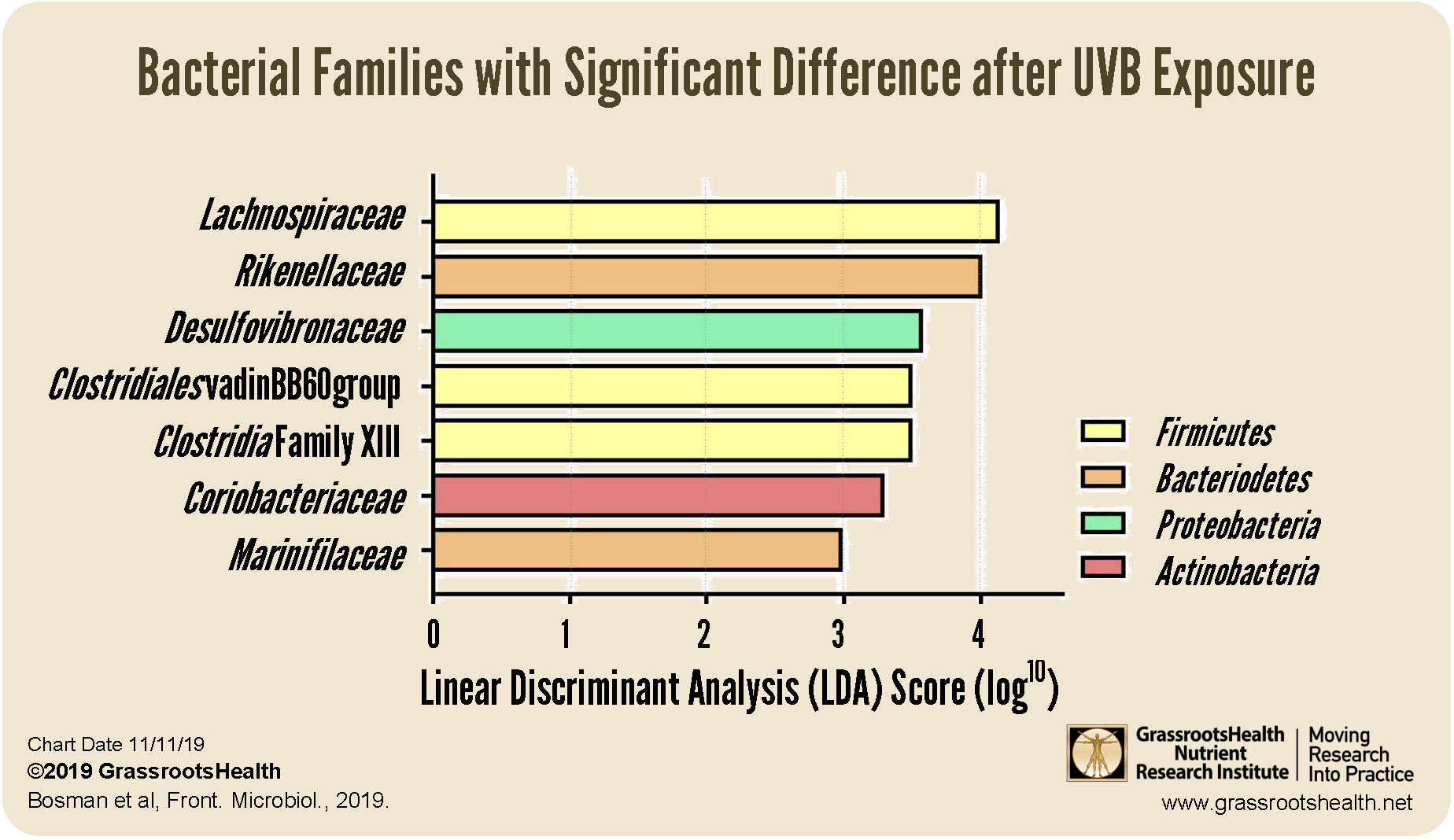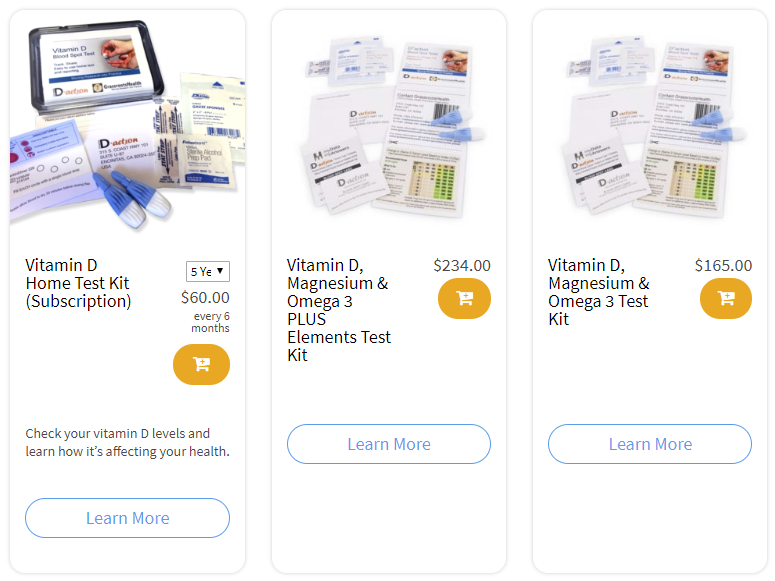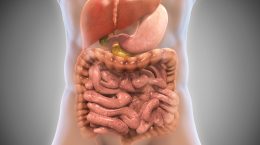Published on November 13, 2019
Certain diseases, such as multiple sclerosis (MS) and inflammatory bowel diseases (IBD), have a demonstrated link between disease risk and sun or UVB exposure, vitamin D levels, and changes in the gut microbiome. However, no research has been done until now to determine if there is a direct link between UVB exposure and the gut microbiome.
 A study by Bosman et al., conducted in February – April 2018, included 21 healthy female participants between the ages of 19 and 40 in Vancouver, Canada and divided them into two groups – those who took vitamin D supplements during the preceding winter (VDS+, starting vitamin D levels >75 nmol/L or 30 ng/ml), and those who did not (VDS-, majority starting vitamin D levels between 25-75 nmol/L or 10-30 ng/ml). All participants were Caucasian with a Fitzpatrick Skin Type of I, II or III. They received 3 sessions of full-body exposure to Narrow Band UVB light within one week. Vitamin D levels were measured before the exposure week and after, and composition of fecal microbiota was analyzed before and after the three sessions as well.
A study by Bosman et al., conducted in February – April 2018, included 21 healthy female participants between the ages of 19 and 40 in Vancouver, Canada and divided them into two groups – those who took vitamin D supplements during the preceding winter (VDS+, starting vitamin D levels >75 nmol/L or 30 ng/ml), and those who did not (VDS-, majority starting vitamin D levels between 25-75 nmol/L or 10-30 ng/ml). All participants were Caucasian with a Fitzpatrick Skin Type of I, II or III. They received 3 sessions of full-body exposure to Narrow Band UVB light within one week. Vitamin D levels were measured before the exposure week and after, and composition of fecal microbiota was analyzed before and after the three sessions as well.
What did this study find?
The researchers found that diversity and richness of the microbiota was much lower in the VDS- group compared to the VDS+ group at the beginning of the study. However, a significant increase in microbiota diversity and richness was seen after UVB exposure in the VDS- group, but no change was observed in the VDS+ group – the result was a similar diversity of microbiota between both groups post UVB. This suggests that individuals with lower vitamin D serum levels have a less diverse microbiota, and that UVB exposure alone is sufficient to increase that diversity.
The above chart shows the strains of bacteria that were significantly affected by UVB exposure. Several bacterial strains, including some from the Lachnospiraceae, Ruminococcus, and Clostridiaeae families, increased with UVB exposure. These strains are associated with a healthy microbiome, and in previous studies, members of the Lachnospiraceae family were associated with improved health status in comparison to individuals who had immune-mediated inflammatory diseases.
Could your vitamin D level be affecting your digestion?
Lower vitamin D levels were associated with a less diverse gut microbiome. Make sure you know your vitamin D level (with a target of 40-60 ng/ml or 100-150 nmol/L), as well as your Omega-3 Index (with a target of 8% or higher) and levels of essential nutrients, such as magensium. Through GrassrootsHealth Nutrient Research Institute, you can also test your inflammation levels, including your level of hsCRP. Find out your levels today! Log on to the shop (click the link below) to get your tests and see for yourself if your level can be improved.
Make sure you track your results before and after, about every 6 months!
Click Here to Access the Shop Page
How can I track my nutrient intake and levels over time?
To help you track your supplement use and nutrient levels, GrassrootsHealth has created an online tracking system called myData-myAnswers. For each specific supplement, you can track what days you take it, how much, and many other details. This will help you know your true supplemental intake and what patterns of use work for you to reach and maintain optimum nutrient levels. Check it out today!








